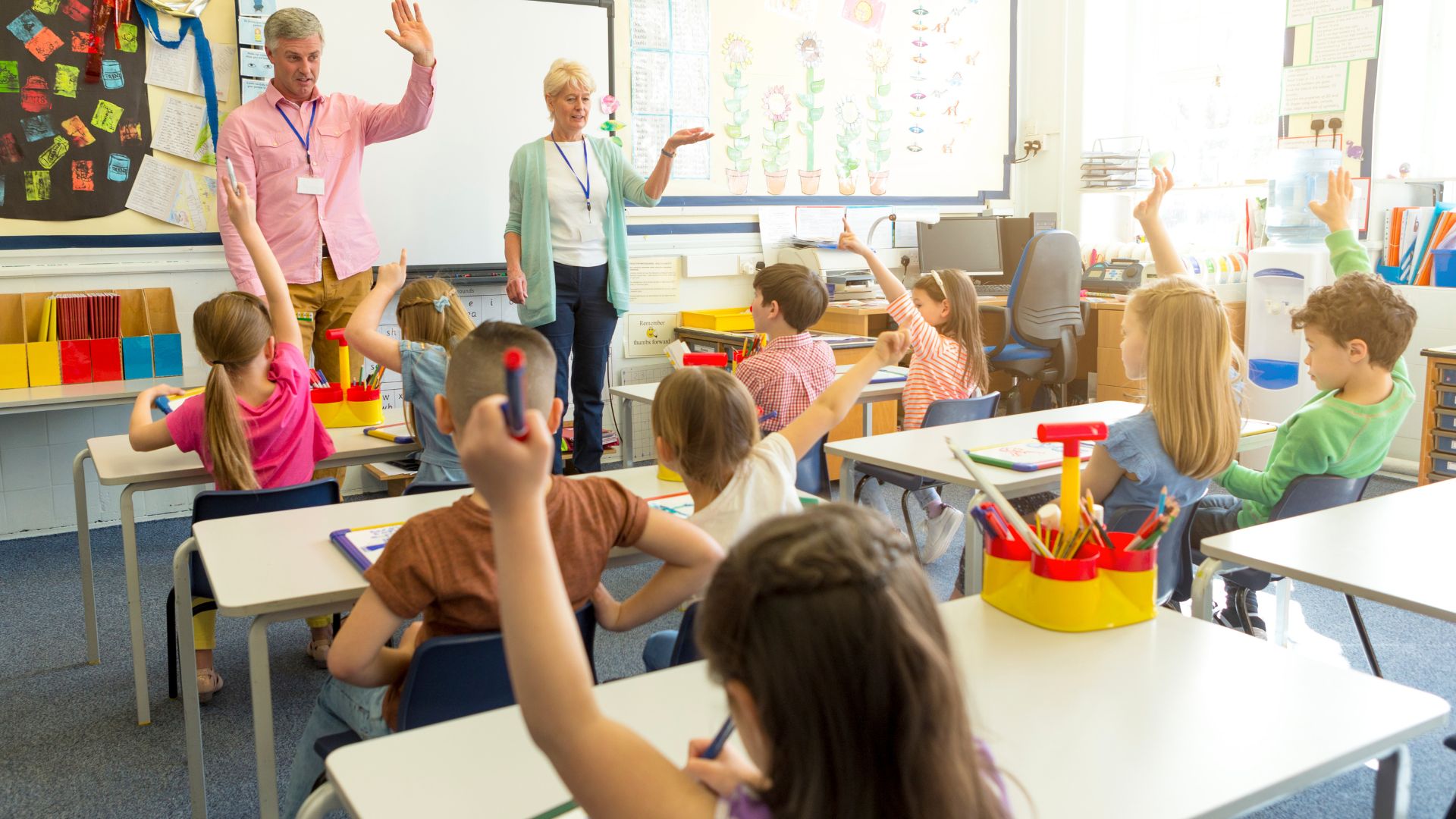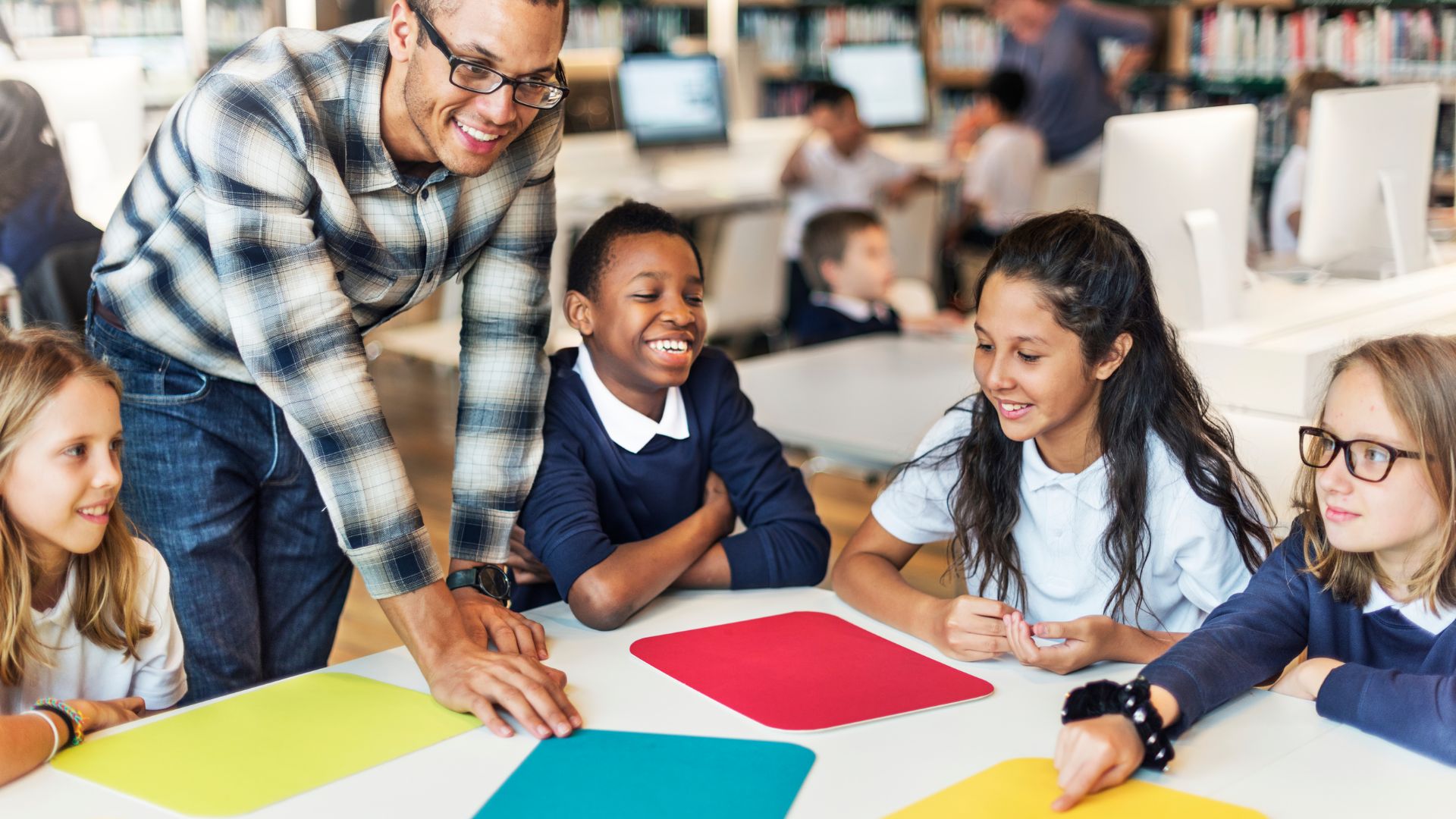How To Reestablish Rules And Routine In The Classroom After School Breaks
07 Apr, 20251-2 minutes
In this blog, you will learn:
- The importance of reestablishing rules and routine in the classroom after school breaks.
- The benefits of a classroom routine.
- How to embrace and incorporate the 5 P’s of classroom management.
- How to find and apply for the latest Teaching jobs.
Back from a relaxing school break? Need to reinforce the rules, set an example and review the classroom routine? This guide is here to help Teachers reestablish rules and routine in the classroom after the summer holidays to ensure the best opportunities for learning and development.
The 6 week holidays are over and it's the start of a brand new school year. For Teachers and Teaching Assistants, it is crucial that they reestablish a routine in the classroom in order to return to the norm. If you’ve already put in the effort and established a routine in the classroom before the school break it is important to return to those habits to ensure students are able to get straight back into learning and development.
Revisiting classroom routines and expectations after a break is the best way to ensure that the rest of the school year goes smoothly. If you’re concerned about how to go about making the classroom a key learning environment in 2025, look no further than this comprehensive guide.
Why is it important to reestablish rules and routines in the classroom after school breaks?
Rules and routines are crucial to give students a clear sense of direction in terms of expectations in the classroom. A routine gives students a sense of structure and encourages students to take responsibility for how their classroom functions.
A good routine or set of rules also sets the tone for students so they know what is expected of them in the classroom throughout the school year and how to reach their achievements. When students have something structural and organised to follow (such as a set of rules), they can better appreciate and understand the impact of their actions and it can encourage them to act more respectfully towards Teachers.
Rules and routines also help foster a sense of belonging and familiarity as well as enhancing the learning and development of pupils.
The benefits of a classroom routine
Having a classroom routine is a great way to encourage students to take responsibility and be held accountable for their environment, behaviour and attitudes towards learning. Rules and routine ensure both Teacher and students have an understanding of how to make the classroom run smoothly and efficiently.
Having a routine and set of rules is beneficial to measure and track both the behavioural and academic progress of pupils in the classroom. Rules are put in place to set boundaries and expectations to ensure students are prepared for the school year and eager to learn.
What are the 5 P’s of classroom management?
Many Teachers utilise the 5 P’s of classroom management to enforce rules and maintain an effective routine for successful learning. Simplify the classroom rules and routine with a set of principles that are easy for students to remember.
Why not try the 5 P’s of classroom management to reinforce expectations and rules in the classroom? They aren’t set in stone, and can be adapted or changed for each classroom or even every term.
Practise the 5 P’s of classroom management
The 5 P’s of classroom management typically consist of or include:
- Prepare.
- Positivity.
- Polite.
- Productivity.
- Patience.
Prepare
The first step to re-establish rules and routine after the school holidays is to prepare by going back and redefine the classroom procedures from the previous term. From daily tasks and activities, to rules about safety and homework, go through the previous rules and routine to determine what went well and what needs more focus or improvement.
Take the opportunity to learn from what was effective in the previous term and ask students to come up with some of their own rules and regulations (within reason). Reflect and adjust the routine if necessary to ensure maximum opportunities for learning and development.
Being prepared means students need to have all the necessary equipment, resources and material to ensure that they are capable of reaching their maximum potential. Ensure you encourage students to prepare and consistently practise these procedures to ensure students understand and follow them.
Positivity
Embracing a ‘think positive’ mindset in the classroom is a great way to motivate students to stay focused and on track of their work. It is important that Teachers encourage students to be positive and develop positive relationships with their peers and staff based on mutual respect and trust. Teachers can do this by showing genuine interest in the wellbeing of their pupils through open communication and active listening.
Encourage positive behaviour and positive attitudes in the classroom to create a warm and welcoming atmosphere for learning. Teachers can use positive reinforcement and recognise or reward positive behaviour to encourage students to work hard and stay motivated in the classroom.
By highlighting students’ efforts and achievements, both big and small, Teachers set expectations and clear boundaries that pupils will then aim towards or view as the norm.
Polite
Being polite and respectful to Teachers as well as fellow pupils in the classroom, is crucial to reestablish rules and routines in the classroom after school breaks.
There are several ways students can be polite and respectful in the classroom but they may need a reminder - especially after 6 weeks away from school! Remind students of the importance of being polite and using manners to communicate such as raising their hand and waiting for their chance to speak and listen to others.
Classroom etiquette and manners is a great way to get students back into their learning environment and is something that students should be applying to all aspects of their lives from learning and development, to social interaction and general communication.
A refresher on basic manners helps to reestablish normality after the school break and acts as a reminder to students on how to behave and treat others, which can help schools manage conflict.
Patience
Patience is a virtue that Teachers are all too familiar with, and a skill that children should be able to practise as well. Returning to school after the summer, winter or any school break, students tend to feel disconnected and have a reduction in motivation. This means it is important to ease students back into their routines carefully.
When it comes to lessons, it might be worth doing a recap of the things the class has learnt or looked at in the previous term, as well as review activities to test their knowledge and understanding. This immediately sets the tone and expectations for the year ahead and gives students some time to readjust and get used to their routine again.
Be patient with your expectations of students and encourage them to get used to being back in the classroom and back into healthy school habits. Introduce change and new rules explicitly and assure students that it will take time to fully commit to the role.
Productive
During the school holidays, students will no doubt have been relaxing and enjoying their time off. Following a school break, reestablishing productivity and high engagement levels can be challenging.
It’s important to encourage students to be as productive as possible by providing them with plenty of material, resources and opportunities to learn, develop and communicate with others in the classroom.
Encourage students to be productive by doing their homework, achieving good results and maintaining the tidiness and standards of the classroom. Teach students about efficiency, productivity and work ethic to ensure that they always strive and never do anything less than their best.
Recruit teaching staff
As a specialist education recruitment agency, we support mainstream and SEND schools with their temporary, permanent and temp-perm staffing needs.
We currently work with hundreds of schools and have exclusive access to some of the best Teachers and Teaching Assistants in the North West.
If you’re struggling to fill a teaching vacancy, why not get in touch with one of our team to see how we can help?
- Primary schools - Jimmy Callagher
- Secondary schools - Liam Jones
- SEND schools - Jamie Heath
Teaching jobs
If you’re searching for your next teaching job, why not take a look at the latest teaching vacancies, or simply upload your CV to be notified when a relevant position becomes available.
If all this library talk has made you eager to read, discover the best books on teaching and 5 books every educational professional should read.
Meet Jamie Heath
Who is Spencer Clarke Group?
Established in 2017, we’re an award winning and progressive recruitment agency based in the heart of the North West. Our reputation is built on trust, expertise and an unwavering commitment to exceed expectations.
In 2024, we were named Recruitment Agency of the Year at the prestigious Recruiter Awards, an accolade we are extremely proud of.
We operate in two sectors:
In eleven specialisms:
Healthcare, Social Care & Nursing
Corporate Functions & Business Support
Planning, Development & Regeneration





